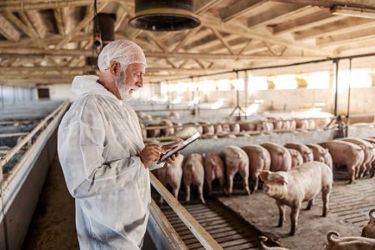Livestock Operations May Face New Wastewater Restrictions Following U.S. EPA Investigation


The country’s foremost environmental regulator is taking a closer look at livestock farms that are often a major source of nutrients and pollutants in surrounding waterways.
“[The U.S.] EPA has not revised its rules dealing with the nation’s largest animal operations — which hold thousands of hogs, chickens and cattle — since 2008,” according to the Associated Press. “While not committing to stronger requirements, EPA acknowledged needing more recent data about the extent of the problem — and affordable methods to limit it.”
Many environmental advocates support stricter wastewater regulations for livestock operations as toxic algae, fueled by nitrogen and phosphorus runoff reaching source water, continues to pose challenges for wildlife and drinking water systems.
“Runoff of waste and fertilizers from the operations — and from croplands where manure is spread — fouls streams, rivers and lakes,” AP reported. “It’s a leading cause of algae blooms that create hazards in many waterways and dead zones in the Gulf of Mexico and Lake Erie.”
The EPA announced that it would like to collect more contemporary data on livestock farms, assess how well it is controlling pollution now, project how changes might reduce pollution and investigate practices and technologies that have been developed since its rules were last changed.
“Revising water pollution rules typically takes several years, three full-time employees and $1 million per year for contractor help, EPA said,” per AP. “The study will determine whether ‘the potential environmental benefits of undertaking rulemaking justify devoting the significant resources that are required,’ it said.”
But it’s unlikely that the agricultural industry will embrace stricter regulations, no matter what the EPA’s studies find.
“Livestock groups have said government regulation is strong enough and that voluntary measures such as planting off-season cover crops and buffer strips between croplands and waterways are the best way to curb runoff,” according to PBS.
To read more about how water systems and agricultural wastewater operations address nitrogen and phosphorus, visit Water Online’s Nutrient Removal Solutions Center.
